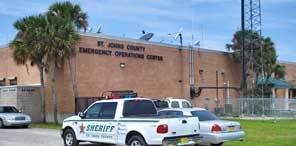
As more local students and St. Augustine residents consider using their computer’s high-speed Internet connection for making and receiving telephone calls, a potentially lifesaving service that most of us take for granted must also be considered.
POTS, an acronym for “plain old telephone service”, has been used for years to access 9-1-1 operators in fire, police and medical emergencies.
The technology used by wired or “land line” telephone carriers is different than the technology used by digital broadband or cellular carriers.
VoIP, an acronym for “voice over Internet protocol”, is the technology used in broadband telephone services from carriers such as Vonage and Comcast.
It is easy to take for granted that when we dial 9-1-1, we are speaking to a local emergency operator who will dispatch the appropriate services in response to our call for help. One of the obvious failings of that logic is that wired telephone service is delivered to a specific, non-changing physical location that is transmitted to 9-1-1 operators along with your call.
An advantage to broadband telephone service is that it is available anywhere in the world that you have a connection to the Internet. That advantage can turn to a disastrous disadvantage when you are trying to get help to your location in an emergency — unless you have made the necessary arrangements in advance.
Some things you should consider when making the switch to VoIP or broadband Internet telephone services:
• Provide your accurate physical address to your VoIP service provider to ensure that emergency services can quickly be dispatched to your location.
• Be familiar with your VoIP service provider’s procedures for updating your address, and promptly update address information in the event of a change.
• Have a clear understanding of any limitations of your 9-1-1 service.
• Inform children, babysitters, and visitors about your VoIP service and its 9-1-1 limitations, if any.
• If your power is out or your Internet connection is down, be aware that your VoIP service may not work. Consider installing a backup power supply, maintaining a traditional phone line, or having a cellular wireless phone as a backup.
• If you have questions about whether the phone service you are receiving is an interconnected VoIP service, contact your service provider for further information.
St. Johns County’s E911 Coordinator can be contacted at (904) 810-6635. They can verify whether or not the carrier you have chosen is capable of delivering emergency identification information directly to the emergency communications center.
Discover more from HISTORIC CITY NEWS
Subscribe to get the latest posts sent to your email.
